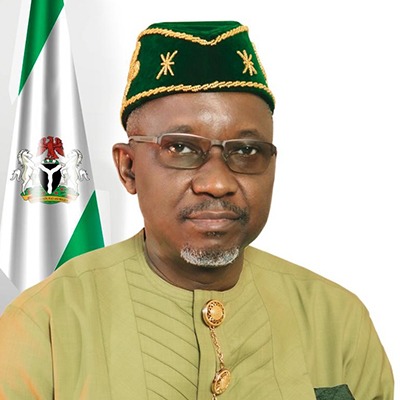The Minister of State, Petroleum Resources (Gas), Ekperikpe Ekpo, has said that Government is prioritizing promoting gas-based industries such as fertilizers, petrochemicals, and methanol not only to diversify the economy but also to create significant employment opportunities.
The Minister stated this at the 23rd Annual Nigeria Oil and Gas Conference, in Abuja, themed : “Showcasing Opportunities. Driving Investment. Meeting Energy Demand”
Ekpo, said that by showcasing these prospects at forums like this conference, Nigeria would attract global attention and encourage partnerships that can drive growth and development.
The Ministry of Petroleum Resources – Gas he said is at the forefront of steering Nigeria towards a prosperous and sustainable energy future and its mandate involves not only formulating policies and supervising their implementation in the oil and gas industry but also creating an enabling environment that fosters growth, innovation, and investment.
The Ministry is committed to highlighting the vast opportunities within Nigeria’s gas sector, said the Minister who also said that through strategic initiatives and comprehensive policies, it aims to reveal the untapped potential across the entire value chain.
He stated also that Nigeria’s natural gas reserves of 209 trillion cubic feet (tcf) are among the largest globally, offering immense possibilities for exploration, production, and utilization.
Ekpo, said the Ministry has been instrumental in implementing reforms that make Nigeria an attractive destination for both local and international investors. He mentioned that the Petroleum Industry Act (PIA) 2021 and the recent Presidential Directive for Oil and Gas Companies on Tax Incentives, Exemption, Remission, etc. by President Bola Ahmed Tinubu, have created a conducive environment for investment.
These reforms ensure transparency, accountability, and regulatory certainty, making Nigeria an attractive destination for investors and the regulatory frameworks now in place incentivize investment, streamline bureaucratic processes, and provide clarity on fiscal terms.
The Minister informed that a key initiative under investment strategy is the Midstream and Downstream Gas Infrastructure Fund (MDGIF) that was designed to catalyze investments in critical infrastructure projects in the midstream and downstream value chain.
“By addressing infrastructure gaps, we can significantly enhance the efficiency and reliability of our gas supply chain.” he said.
Also he stressed that meeting the growing energy demands of the nation and the continent is a priority for the Ministry which recognizes that natural gas is central to achieving this goal, given its status as a cleaner and more efficient fuel.
Thus he said that the country’s gas-to-power initiatives are pivotal, aiming to provide reliable and affordable electricity that supports industrialization and improves living standards.
Additionally, Ekpo, said the country is promoting the use of Compressed Natural Gas (CNG) for vehicles, also known as Autogas and initiative that is not only a strategic response to cushion the effects of downstream deregulation but also a significant driver of market growth and job creation for Nigerians.
“The transition to Autogas presents numerous benefits, including efficiency, availability, accessibility, versatility, and environmental safety. By fostering the use of CNG and Liquefied Petroleum Gas (LPG), we are positioning Nigeria as a leader in clean energy solutions, enhancing both energy security and environmental sustainability.” he explained.
The Ministry is also committed to expanding domestic gas utilization and by fostering strategic partnerships and supporting innovative projects, it aims to enhance energy access and drive sustainable development,,adding, “Our vision is to ensure that every Nigerian has access to affordable and reliable energy, thereby fostering economic growth and improving quality of life.”
In alignment with these goals, the Ministry has also declared the Decade of Gas Initiative an ambitious initiative that aims to transform Nigeria into a gas-powered economy by 2030.
This involves optimizing the entire gas value chain, from exploration and production to processing and utilization which is not just a policy declaration but a strategic vision to harness our gas resources for national development.

